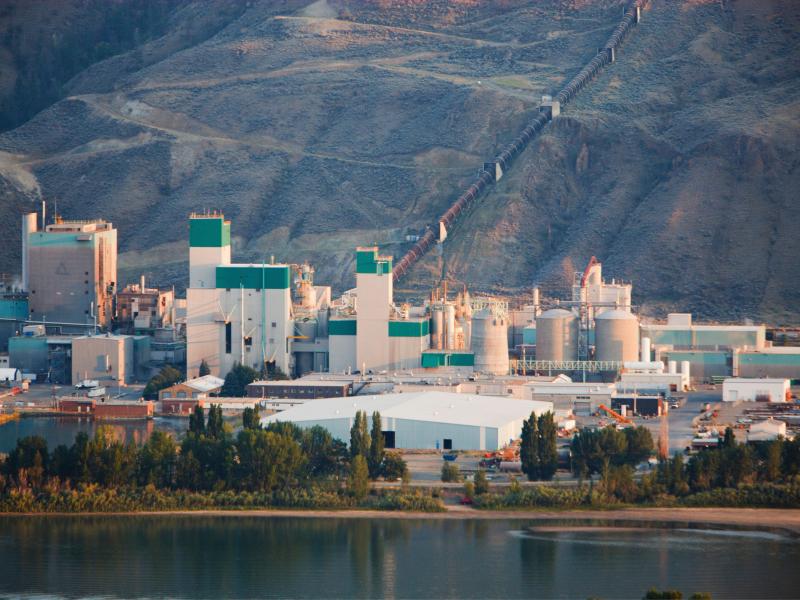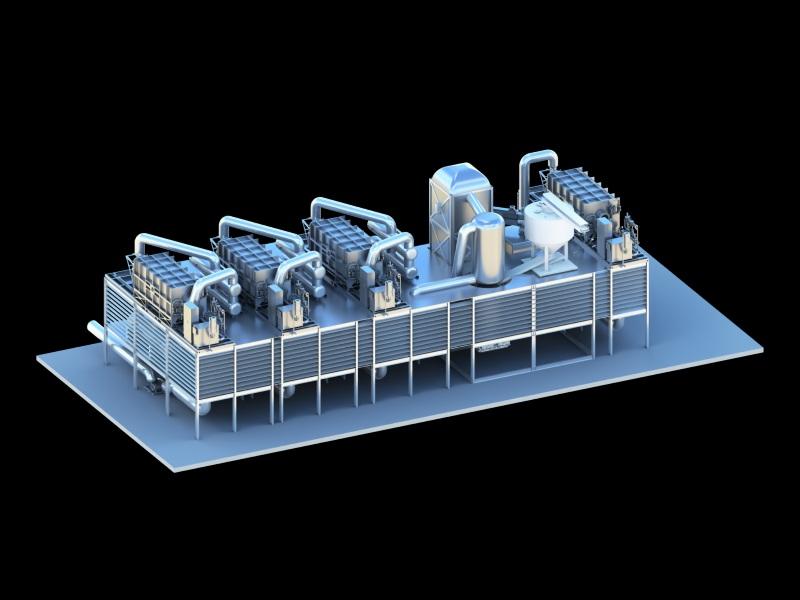Recent Articles
Oxford achieves WELL ratings for its 47 office properties
Oxford achieves WELL ratings for its 47 office properties
The Oxford Properties Group portfolio is one of the largest in the world to achieve IWBI’s WELL Health-Safety Rating. It achieved the rating for its 47 properties, including Berlin’s Sony Center, the first office building in Germany to attain the rating.
Energy rules could make 1 in 10 London offices ‘obsolete’
• CNBC
Approximately 10 per cent of London offices could become unusable when new energy efficiency rules are implemented. These rules, set for 2023, will prevent buildings in England and Wales with energy efficiency ratings lower than “E” from closing new leasings.
Climate risk scores could reshape Canadian real estate
• CBC • IPE Real Assets
If a house will be submerged in 30 years, should that be disclosed during the sale? A Toronto real estate agent is asking for climate risk assessment to be added to real estate listings in Canada and factored into properties’ values.
Climate change shifts way Canadian insurers assess risk
The estimated $78-million in insured property damage from the wildfire that devastated the community of Lytton, B.C., in June is a fraction of the rising costs of disasters fueled by climate change, said the Insurance Bureau of Canada (IBC).
Indigenous burning practices help biodiversity
For many ecosystems, fire plays a key role in supporting and maintaining biodiversity. For thousands of years, Indigenous people have purposefully used fire and know how specific types can increase or decrease the abundance of species in a given area.
Vancouver considers charging vehicles for road use
Mobility pricing refers to charging vehicles for road usage, using methods such as distance-based or point charges. Municipalities in the Lower Mainland have been considering the idea for years as a way to shift people from cars to transit.
Toronto designed for climate that no longer exists
• CBC
Toronto is designed for a climate that no longer exists, experts say, and they warn the city has to come up with a better plan to cope with the smoggier, hotter, soggier and stormier weather that’s plaguing it right now.
Buying due to pandemic malaise hurts planet
• CBC
The destruction seen today is fueled by decades of environmental harm. Meanwhile politicians and marketers are prompting people to spend. Mass consumption inevitably adds stress to the natural world, in the form of resource extraction and carbon emissions.
Lafarge Canada issues more EPDs in Western Canada
With more environmental product declarations (EPDs) released for concrete available in Alberta and Manitoba, Lafarge’s ongoing commitment to sustainability remains in the forefront. The EPDs provide third-party verified data critical to surging sustainable construction across Western Canada.
Loblaw to electrify fleet with Freightliner eCascadia
• Newswire
Loblaw Companies Limited took an important step on its journey to move its corporately-owned trucking fleet to electric vehicles, with the introduction of Daimler Trucks North America‘s (DTNA) battery-electric Freightliner eCascadia to routes in British Columbia.
Equinix invests $3.7B in green bonds
• GreenBiz
Equinix, a leading data center real estate investment trust, announced that it is committed to becoming climate-neutral by 2030, the first company in the industry to do so. Equinix is aiming to be a sustainability leader with help from green bonds.
Toronto SWF proves infrastructure can be beautiful
In Europe, infrastructure design is taken seriously, but in North America, most infrastructure is designed by engineers who bid the lowest price in proposal calls. The Storm Water Facility (SWF) designed by GH3* has no asphalt shingles or mansard roofs.
Recycling Partnership opens Recyclability Framework
The Recycling Partnership opened up its Pathway to Circularity Recyclability Framework for public comment — a first-of-its-kind opportunity for brands, designers, materials manufacturers, NGOs, retailers and other stakeholders representing the entire recycling value chain to shape the future of packaging recyclability.
To become a net-zero company, focus on 3 areas
To be net-zero, companies cannot focus only on individual operational efficiencies. By evaluating every area the business touches from an emissions standpoint, companies can become net-zero and create an entire net-zero ecosystem.
Globe Climate: 5 climate change myths to dispell
Despite the IPCC report proving climate change owing to fossil fuel emissions is actually occurring, the message still has an uphill battle against online disinformation. Five misconceptions in particular are often repeated by climate skeptics.
C2V Initiative’s 1st cohort to develop new carbontech
The Carbon to Value (C2V) Initiative has introduced its first cohort of companies aimed at commercializing carbon technologies (carbontech) that capture and convert CO2 into valuable end products or services. Carbontech has a market opportunity of up to $6 trillion globally.
VPPs encouraged during extreme weather
• GreenBiz
A virtual power plant (VPP) is a collection of privately owned energy resources that can be interconnected and operate together. While independently owned and operated, they can be controlled centrally, allowing dispersed resources to respond to energy supply and demand.
FEMA receives $3.5B from Biden admin for microgrids
• Microgrid Knowledge • Microgrid Knowledge
The Biden administration is dedicating $3.5 billion to a Federal Emergency Management Agency (FEMA), and the funds can be used to build microgrids. As part of FEMA’s Hazard Mitigation Grant Program, the funding is designated for measures issued due to COVID-19.
BHP retreats from fossil fuels amidst climate scrutiny
BHP Group is in talks over a potential merger of its oil and gas unit with Woodside Petroleum Ltd. to accelerate a retreat from fossil fuels amid increasing pressure to curb emissions.
Canada’s largest public pensions invest in fossil fuels
• CBC
According to a report Canada’s biggest public pensions continue to invest heavily in fossil fuels despite rising concerns about climate change. CPP Investments‘ total fossil fuel investments across its entire portfolio have increased from $9.9 billion in 2016 to $11.6 billion in 2020.
 Industry Events
Industry Events
-
ECO IMPACT 2026
Feb 19 2026
to Feb 20 2026
The Westin Calgary
-
BuildGreen Atlantic
Apr 27 2026
to Apr 28 2026
Halifax, NS
-
The Evergreen Conference
May 06 2026
to May 07 2026
Toronto, ON
-
Building Lasting Change
Jun 17 2026
to Jun 19 2026
Montréal, QC
-
Retrofit Canada Conference
Jun 24 2026
to Jun 25 2026
Halifax Convention Center











